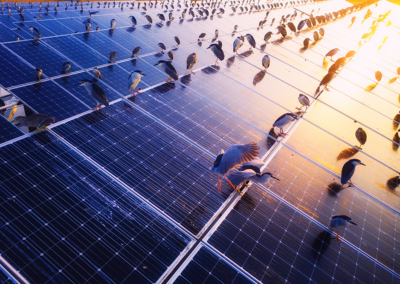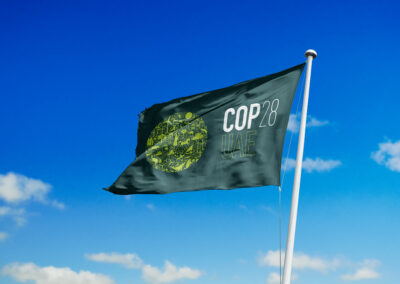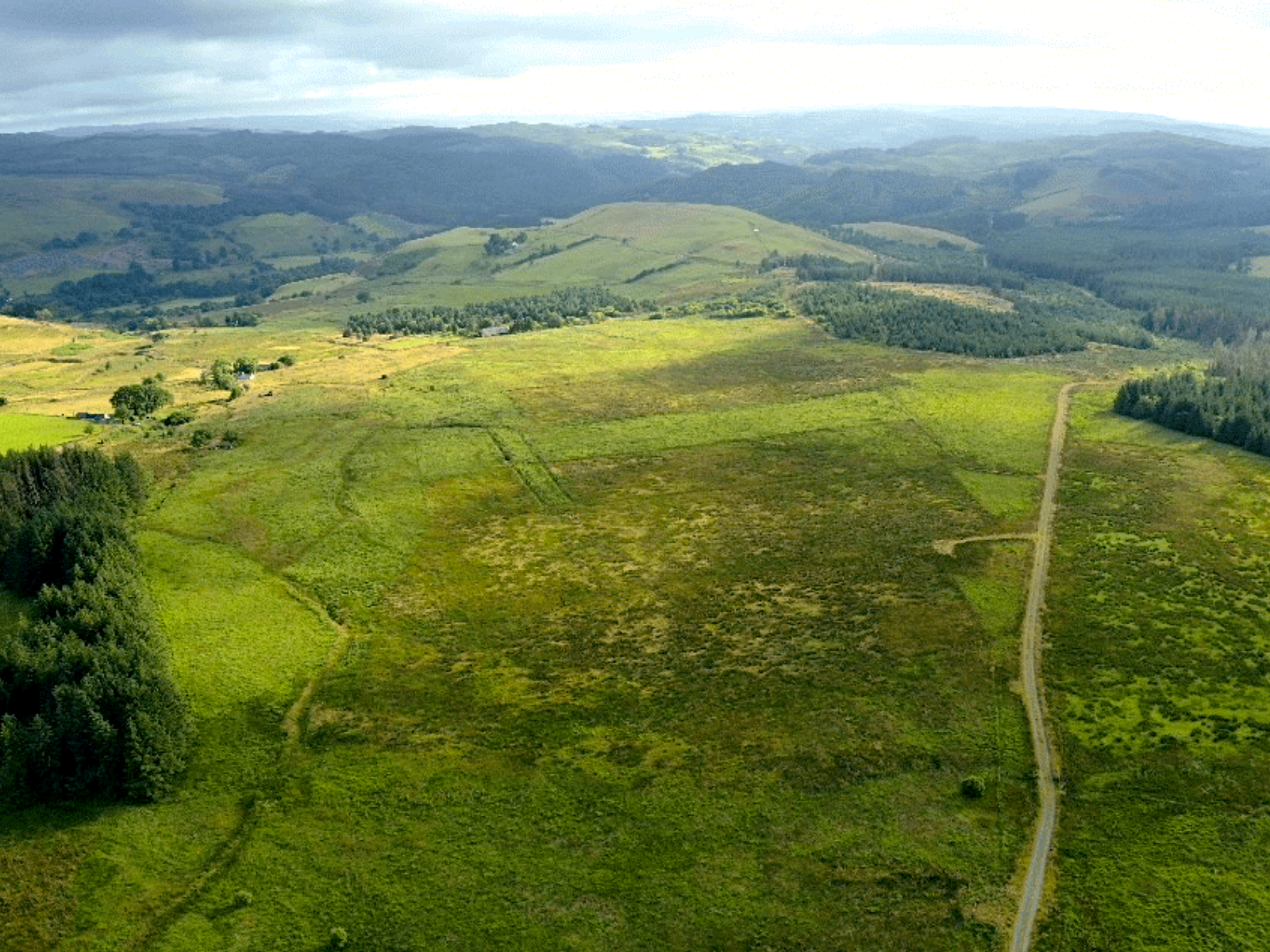the urgency of zero
In order to avoid disastrous environmental consequences, it is essential that we achieve the ambition of the Paris Agreement: to hold average global temperature increases to well below 2°C above pre-industrial levels, whilst pursuing efforts to limit the temperature increase to 1.5°C. To do this, we must reach net zero emissions by mid-century.
While the Paris Agreement sets a global objective, action towards this common goal is driven at the national level, with each party being responsible for setting and delivering their own policies to achieve it. While there may be different approaches to attaining net zero, it is important that these plans adhere to a common set of principles.
Speed is crucial – we need to combine long-term net zero commitments with immediate action and short-term interim targets. Every year of delay before initiating emission reductions reduces the time available to reach net zero emissions while keeping below 1.5 °C by approximately two years. This urgency necessitates rapid and drastic action.
“There are sound scientific and economic reasons to reduce emissions as much and as fast as possible” (Fankhauser et al, 2022)
Net zero strategies need to be implemented now – delivering mitigation benefits takes time. In addition, the efficacy of many strategies is time-sensitive. The contribution of Nature-based Solutions, for example, to limiting peak-warming will diminish as warming and other climate-driven risks compromise the restoration of ecosystems and long-term carbon storage.
Net zero commitments should not be considered as replacements to urgent and comprehensive emissions cuts – we must tackle all emissions, including those from the most difficult sectors (e.g. food, agriculture, aviation and mining), to effectively combat climate change. Decarbonising industries and investing in clean energy (renewable, nuclear and hydrogen sources) is central to most emission reduction strategies and, together with carbon capture and storage technologies, could deliver over 70% of the emissions reductions needed to achieve net zero by 2050. Emissions cuts are also expected to emerge through behavioural (e.g. diet and transport) changes on the consumer level, and are predicted to deliver 11% of the emissions reductions needed to achieve net zero by 2050.
Although less established than incumbent technologies and infrastructures, zero-carbon solutions are present in most sectors. Despite often being costly, their long-term uptake is vital in achieving net zero. Front-loading emission reductions is essential in terms of addressing the immediate challenges of climate change. By reducing emissions early on, we can slow rates of warming and the severity of its consequences. This also preserves optionality, allowing for the adjustment of carbon budgets and emission reduction targets as new findings emerge.
PRIORITY AREAS
CLIMATE LEGISLATION AND NET ZERO LAW
The law is a powerful tool to tackle climate change. Legal architecture can help enforce climate commitments and obligations, create frameworks for policy action and provide incentives for crucial infrastructure investment. Research has found that each new climate law reduces annual CO2 emissions per unit of GDP by 0.78% nationally in the short term (during the first three years) and by 1.79% in the long term (beyond three years) (Eskander, S.M.S.U. and Fankhauser, S., 2020).
While net zero targets continue to proliferate, a net-zero-compliant legal architecture provides the institutional backdrop for their effective and credible implementation. ONZ research is evaluating the adoption and credible implementation of net zero commitments and designing legal frameworks to support the transition to net zero.
NET ZERO FOR THE FOSSIL FUEL SECTOR
Increasing numbers of companies are producing net zero targets and strategies, including challenging sectors such as fossil fuel production and mining. Evaluating these strategies, and designing objective metrics of progress towards achieving them, remains work in progress.
ONZ is leading a programme of research to define what is required from the fossil fuel sector in order to be aligned to the global goal of net zero by mid-century. A framework for evaluating net zero plans of the highest-carbon-risk companies will be developed.
NET ZERO FOOD SYSTEMS
37% of the world’s non-ice covered land is dedicated to food production (Food and Agriculture Orgnanization). Food demand is projected to increase globally, and agricultural land expansion is projected to expand by an area nearly twice the size of India by 2050 (Searchinger et al., 2019).
Current agricultural emissions are around 12 GtCO2 per year. They are projected to rise to 15 GtCO2 per year by 2050, but to reduce in line with the Paris Agreement temperature goals, that number needs to reduce to 4 GtCO2 per year (Searchinger et al., 2019). This presents an enormous challenge: societies need to feed growing populations, while reducing agricultural emissions and halting deforestation.
ONZ research is helping to develop mitigation strategies for the UK land sector. One project is focussing on the application of novel emissions and land-use accounting metrics in the development of net-zero pathways to incentivise decisions that help feed the world without destroying it.
NET ZERO REGULATION
Regulation around net zero is an influential and practical tool. It can be employed to level the playing field, transform pre-existing voluntary commitments into rules for the economy, and ultimately help reach the emission targets set by the Paris Agreement.
Between May and August 2023, Oxford Net Zero took stock of national-level climate regulations and policy instruments coming from G20 members. Read more about the findings here.
Renewable Energy Transition
The renewable energy transition is not just an environmental imperative. It also offers a unique opportunity to advance green prosperity and genuinely sustainable development (Frankhauser et al, 2023).
Rolling out renewable energy can boost energy access, make modern economies cleaner and more efficient, develop new areas of comparative advantage, unleash a virtuous cycle of innovation, investment and growth, and provide an investment stimulus to slow-growing economies (Frankhauser et al, 2023).
The benefits are particularly pronounced in developing countries, where universal access to energy is essential for a just transition. Oxford Net Zero research is helping to form practical proposals to achieve renewable energy projects at scale and create the next generation of clean energy champions.
Research summary
Governance, accountability and reporting mechanisms surrounding net zero targets are currently inadequate, with long-term ambitions often lacking the backing of near-term action. Many entities have failed to set out the plans required to achieve their targets, and often replace cutting their own emissions with investments into carbon offsets – some being of questionable environmental and social integrity.
Through analysing the scope for rapid and comprehensive emissions reductions and identifying possible technological, governance and public policy solutions, our research aims to tackle these challenges and establish clear guardrails to ensure the robustness of net zero as a framework for climate action.
Recent publications
• Fankhauser, S. (2021). What next on net zero? One Earth. 4(11), 1520–1522
• S. Fankhauser, C. Hepburn, S. Hirmer, T. Kukeera, D. Singh, I. Sundvor, P. Trotter and P. Yang. (2023). Rolling out Renewables in the Global South: A Developer Perspective, Smith School of Enterprise and the Environment, University of Oxford.
OTHER RESEARCH THEMES
News and Events



Onshore geological carbon storage has potential in the UK, but key knowledge and regulatory gaps remain – ONZ report
A new report by a team of Oxford Net Zero researchers reviews the current state of knowledge on onshore geological carbon storage (GCS) and its feasibility in the UK. Read more



Oxford launches revised Offsetting Principles
As part of their net zero strategies, many companies, organisations, cities, regions and financial institutions are relying on voluntary carbon credits to offset their residual emissions. But evidence continues to cast doubt on the integrity of ... Read more



Job Opening at ONZ: Impact and Operations Officer
Oxford Net Zero is looking for a highly organised and motivated Impact and Operations Officer to join its team. You will be working alongside the Programme Manager, Cath Ibbotson, and the Head of Policy and Partnerships, Kaya Axelsson to ... Read more



Net Zero Regulation Stocktake Publishes Results
A new report published by Oxford Net Zero presents a comprehensive ‘stocktake’ of developments in net-zero regulation across the G20 in 2023. It focuses primarily on four regulatory domains: claims and financial products standards, disclosure, ... Read more



New ONZ report on rolling out renewables in the Global South
The scaling up of clean electricity, and using it to decarbonise other parts of the economy, is central to all decarbonisation pathways. In their latest report, “Rolling out renewables in the Global South”, Oxford Net Zero’s Sam Fankhauser ... Read more



Oxford Net Zero at COP28
The Oxford Net Zero community is mobilising its collective expertise to help drive ambition at COP28, being held in the UAE from 30 November – 12 December. Read more



